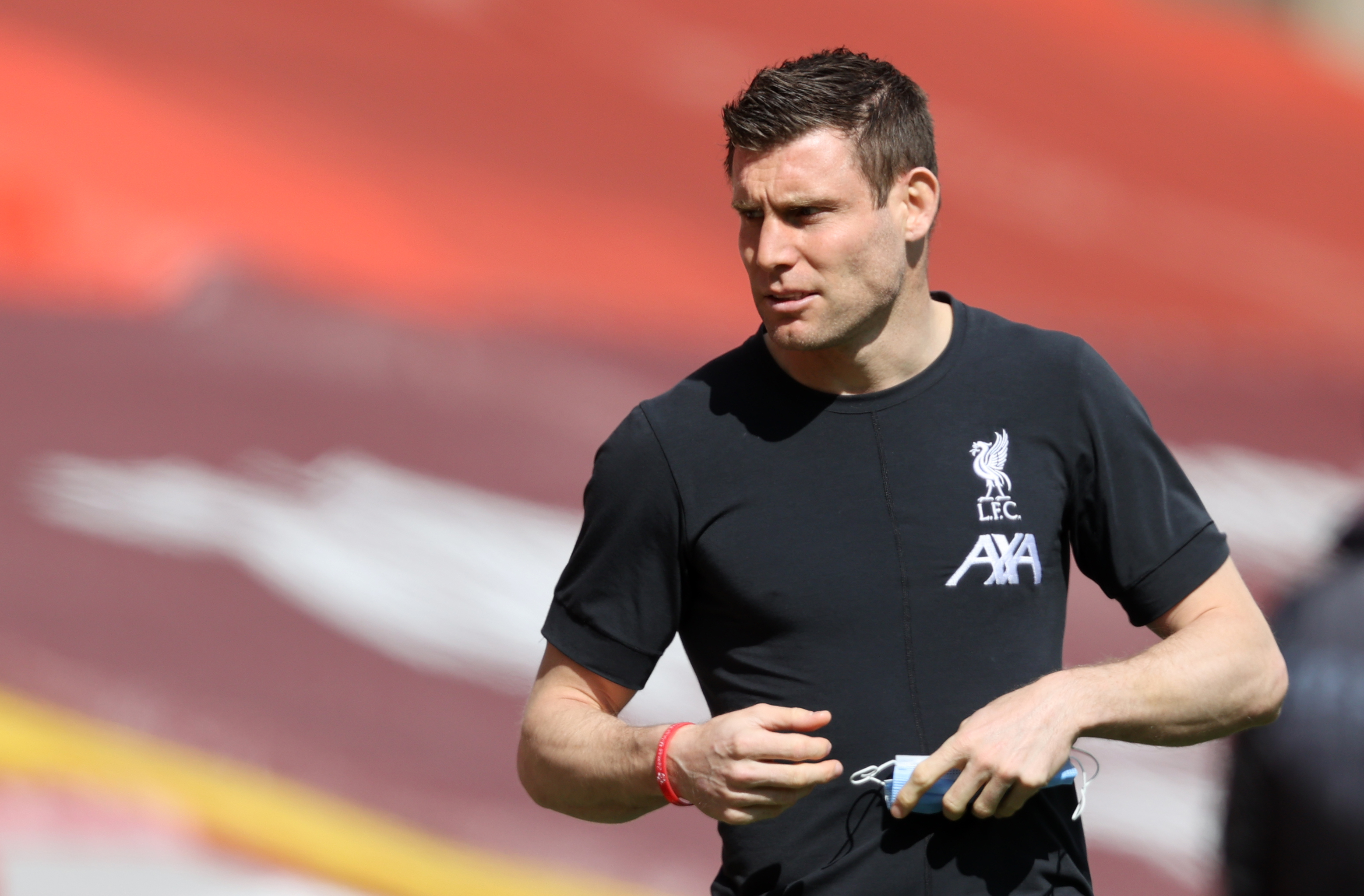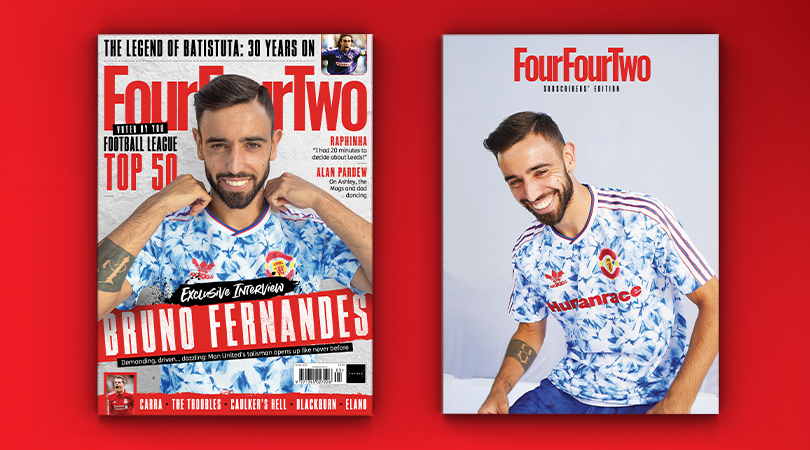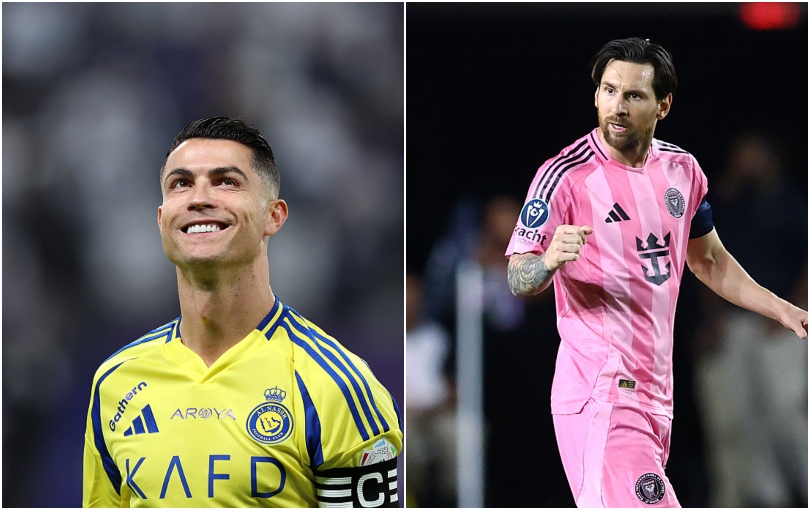In praise of the footballers who helped stop the European Super League
How James Milner, Pep Guardiola, Marcus Rashford and others joined fans by speaking out against the European Super League

James Milner has always made for an improbable idol. His career has spanned 20 years and one haircut. He has had an unflashy approach that has made him the everyman utility player and a lifestyle that means he is the 35-year-old with the running power to win bleep tests against those who were toddlers when he started playing. The graft can disguise his craft and there was something wonderfully incongruous when, in 2017/18, he set the record for most Champions League assists in a season.
CONOR POPE Why was the European Super League's launch so bad?
Many of his distinctions are the product of longevity but if there seems something timelessly unchanging about Milner, perhaps his greatest service to the sport he has graced came after the 833rd game of a marathon career. “I don’t like it and I hope it doesn’t happen,” he said after Liverpool’s draw at Leeds, and in the course of one sentence, he helped turn the tide. There was no vitriol and nothing overblown but just an honest verdict on the European Super League from a character who is a byword for common sense.
Where Milner led, others followed. The Liverpool players’ joint statement the following day included the sentence: “We don’t like it and we don’t want it to happen.” The similarity in the wording felt uncoincidental. They got their wish, even without the virtual meeting of Premier League captains that Jordan Henderson had arranged needing to take place. It is safe to say Henderson was not going to persuade them of the merits of the Super League.

After a week of an existential crisis in football, it is worth praising and celebrating the heroes of the resistance. It is easy to say that, at 35 and with his millions made, Milner had less to lose than others. And if that ignores the possibility his Champions League assist record would be obsolete in the terrible new world, it isn’t the point. He spoke up when he did not have to and for the greater good.
Footballers and managers did not create this crisis, but it was a test how they reacted. The heroes of the resistance responded. Luke Shaw acknowledged that speaking up was in itself problematic but voiced the views of many when he said his boyhood dreams were to play in the Premier League and Champions League; in the rush to create new competitions that were devoid of meaning, it transpired footballers liked the Premier League and Champions League; who knew?
Bruno Fernandes’ Instagram message to Daniel Podence – “dreams can’t be buy” – expressed his opposition to a closed shop. Kevin de Bruyne’s social-media post had the word “competing” in capital letters. Marcus Rashford illustrated which side of the divide he was on without directly criticising employers with Sir Matt Busby’s words: “Football is nothing without fans.” Hector Bellerin adopted a similar stance by quoting Arsene Wenger: “To all the Arsenal lovers, take care of values of the club.” Sometimes subtlety has been required but the message has been apparent.
Get FourFourTwo Newsletter
The best features, fun and footballing quizzes, straight to your inbox every week.
Outside the supposed Super League and less constrained by the need for diplomacy, there was eloquent opposition from Patrick Bamford, who noted the lack of similar attention to racism; from Dejan Lovren, who said “the day football stopped being football and became soccer.”; from Mesut Ozil, who stated: “Kids grow up dreaming to win the World Cup and the Champions League - not any Super League.”; from Dani Alves, who said: “We do not allow top hats to spoil these possibilities of small ones dreaming of being big.”; and from Ander Herrera, the most articulate of all. “The rich stealing what the people created,” the midfielder wrote.
It reflected the reality that even the most successful of footballers have lived outside the bubble of the plotters. Most players served an apprenticeship at at least one club that would have been shut out of the closed shop: Milner’s Leeds, Aston Villa and Newcastle, Henderson’s Sunderland, Shaw’s Southampton, Fernandes’ Sporting Lisbon and Udinese, Herrera’s Real Zaragoza and Athletic Bilbao, Alves’ Sevilla, all nine of those Bamford has represented.
The managerial comments carried weight. Sir Alex Ferguson owes United for becoming a cheerleader for the Glazers but at least made a rare intervention, citing United’s rich European history. The most important things Jurgen Klopp said on Monday were confirming his opposition to the Super League. Pep Guardiola arrowed in on the major point that it is not a sport if there is no relationship between success on the pitch and reward or failure; it underlined Klopp’s point that “I like the fact West Ham might play Champions League.”
Defeating the Super League owed most to supporters, something to governments and the punditocracy, marshalled by a marvellously indignant and militant Gary Neville. But at a time when the values and integrity of football came under unprecedented threat, the band of footballers who showed principle and courage are worth cherishing. There is no doubt the game has been good to each, but now they have been good to the game.
Subscribe to FourFourTwo today and get your first five issues for just £5 for a limited time only - all the features, exclusive interviews, long reads and quizzes - for a cheaper price!
NOW READ
ANALYSIS European Super League: Is it just a bluff to get more out of the Champions League?
EXPLAINED European Super League: Why aren’t Bayern Munich, Borussia Dortmund and PSG involved?
50+1 RULE What is it and could it work in the Premier League?
Richard Jolly also writes for the National, the Guardian, the Observer, the Straits Times, the Independent, Sporting Life, Football 365 and the Blizzard. He has written for the FourFourTwo website since 2018 and for the magazine in the 1990s and the 2020s, but not in between. He has covered 1500+ games and remembers a disturbing number of the 0-0 draws.

